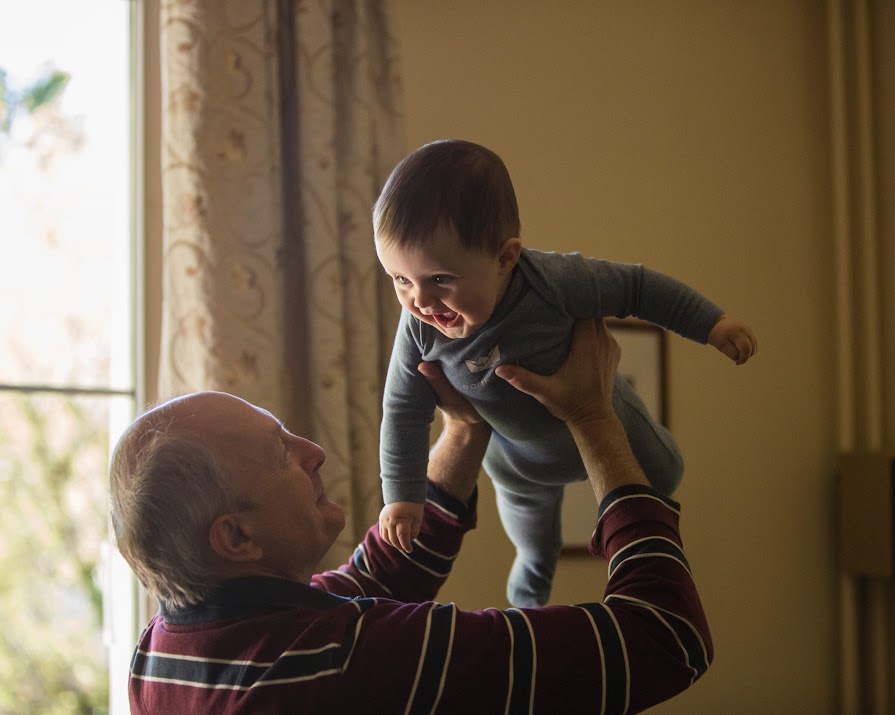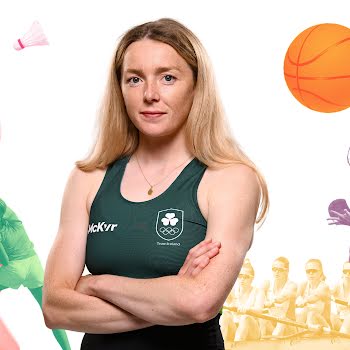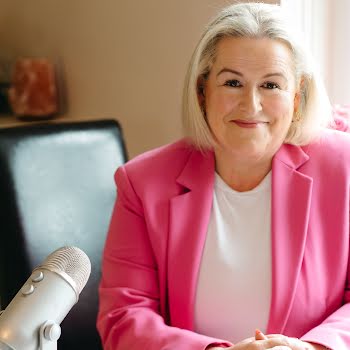
Meet generation sandwich: middle-aged folks with ageing parents and not-quite-grown children to care for
By IMAGE
18th Nov 2021
18th Nov 2021
There’s a growing number of middle-aged folks with ageing, ailing parents as well as children all vying for their care and attention. Mum and daughter Emer O'Reilly-Hyland introduces the Sandwich Generation.
Who’d have thought of Prince Charles as a poster-boy, but there he is, at 70, with elderly parents, his mother still doing the job he has been groomed for all his life, and his children still needy (all those rows he has to arbitrate between the Wills/Kate and Harry/Megs camps), and he’s never looked happier or more content. He’s a great ad for the Sandwich Generation, that is middle-aged people caught between elderly parents and children, all inter-dependent.
Most of us don’t have a parent blocking our ultimate career goal, but with people living longer, many well into their nineties, and women having babies later, there’s an increasing number of that middle generation dealing with the demands of two needy groups. Sandwich Gen-ers are out there, and the number is rising.
The problem with being a Sandwich Gen is that, like ageing, wrinkles, weight-gain and creaking joints, it creeps up on you. One moment, you’re an (albeit not-so-young) mother to a toddler, forging ahead in your career, with able parents to do a bit of babysitting and come to lunch once a week. The next, you’re negotiating side-boob with a moody teenager who wants to go to a disco in little more than a swimsuit, you’re managing a staff of 20 along with an extended workload, and you’re bringing lunch to your increasingly debilitated parents, not just once, but several times a week; in fact, you’re the one who’s doing the babysitting, of your parents.
Advertisement
One day, you realise you’re truly exhausted, you have been for ages. You wonder why you haven’t been to yoga or read your Book Club novel in months, and when it comes to the weekend, you’d rather takeaways than a night out with your friends. Caught between two demanding factions, you, the filler, are feeling very thinly spread indeed.
That said, thank God for it. I’m one, BTW, a fully qualified SGen (one mother 90+, a teenager and I, I hate to admit, middle-aged!). Here we are, utterly blessed to have mum and/or dad still going strong; no tragic loss of a parent taken too suddenly or too early, not an orphan among us. We have the joy of having them around, their love and comfort, their humour and stories and treasured advice. I’ve had some of the most loving times with my gorgeous mum in the past few years and am cherishing every moment. And, let’s be honest, it augurs well for our own longevity! The problem is, when they are no longer going strong, when physically or mentally, they can’t function alone, as they become increasingly dependent for everything from filling the fridge to doctors’ visits to organising the TV repair man. And that’s just the start of it.
In the meanwhile, those late babies are making demands of their own. If we, as older mums, felt the toll of keeping up with energetic toddlers, it was nothing compared to negotiating screen time and content, allaying their fears of being an FYF (First Year Frigid – they haven’t had a proper kiss) and bolstering them up in the constant battle of being judged by their peers. It’s exhausting, terrifying, wonderful, all at the same time. But just when we were thinking of a bit of me-time, when we’re finally in a position to delegate at work, afford the trip-of-a-lifetime to India, crisis happens.
Take my friend Kate, 45, a legal bigwig, two kids – Holly, 13, and Jack, 11 – and dad, 85. There they were, suitcases on standby at the hall door, taxi booked for a 5am ride to the airport and a flight to the States, that included the Grand Canyon and Las Vegas. The bags never left the hall. Granddad took a turn during the night, called an ambulance and Kate, in that order. The trip was cancelled, anything in a crisis. But it transpired that all he was suffering from was heartburn, not heart failure. If only he’d phoned Kate before the ambulance, she could have sorted him out, got the family on the plane and avoided the stern lecture she got from the resident doctor about her father’s drinking.
Kate was left in a quandary. Not only were her children not speaking to her and deeply resentful of their granddad, there was a bigger issue. She had known her dad was getting needier. His clothes were grubby, and he had hair growing out of places he would have meticulously plucked in the past. She’d suspected he was drinking but had reasoned that it was just a night-time tipple that probably helped him sleep. But she’d had other things on her mind the last few months – Holly had developed eczema, most likely from stress at school, and Jack had been diagnosed dyslexic, something Kate herself feels guilty that she didn’t spot earlier. She’d known for months that she was just about keeping things ticking over. Now she knew something had to give.
“I feel like I’m in Sophie’s Choice,” she wailed one day, referring to the Meryl Streep film where her character is forced by an SS Officer to choose to save one of her children and sacrifice the other. I was nonplussed at this, seeing as how we were sitting in her sublime back garden, sipping rosé. “What?” I exclaimed. “Who are you handing over to the Nazis?” “My dad,” she sobbed. “I’m putting him in a home, and he’s heartbroken. But it’s him or the children, or me – I can’t keep everyone happy.”
Advertisement
I don’t know what I was expecting, possibly that Kate would say she’d work from home two days a week, or that she was packing Jack off to Ring next year. Not this, not banishing her lovely dad to life in an institution, against his will. So what if there is hair growing out of his nose; what’s the problem with a dribble of tomato soup down his jumper? Couldn’t she do a bit of plucking and laundry and let him live peacefully in the comfort of his own home?
But that’s the dilemma facing all Sandwich Gens – dutiful son or daughter versus the guilt of Sophie’s Choice; potential burnout versus choosing one side over the other or choosing you; the minefield of family politics – who’s pulling their weight, who’s shirking, and the sibling who lives abroad who can always “do it better”. There is no manual; it’s a constant negotiation, a period of flux, more often shaped by crisis, or a series of mini-crises, than by forward planning.
Ultimately, for the Sandwich Generation, life can feel like a kind of limbo, but it’s for a limited time only. That’s the beauty and the tragedy of it. I, for one, am with Prince Charles. I’m savouring every moment of my limbo, enjoying both the young and old, appreciating the reprieves when both sides of my sandwich are relatively crisis-free. I’m living in the moment, their moments… Long may they last.
This article originally appeared in the December 2019 issue of IMAGE.























